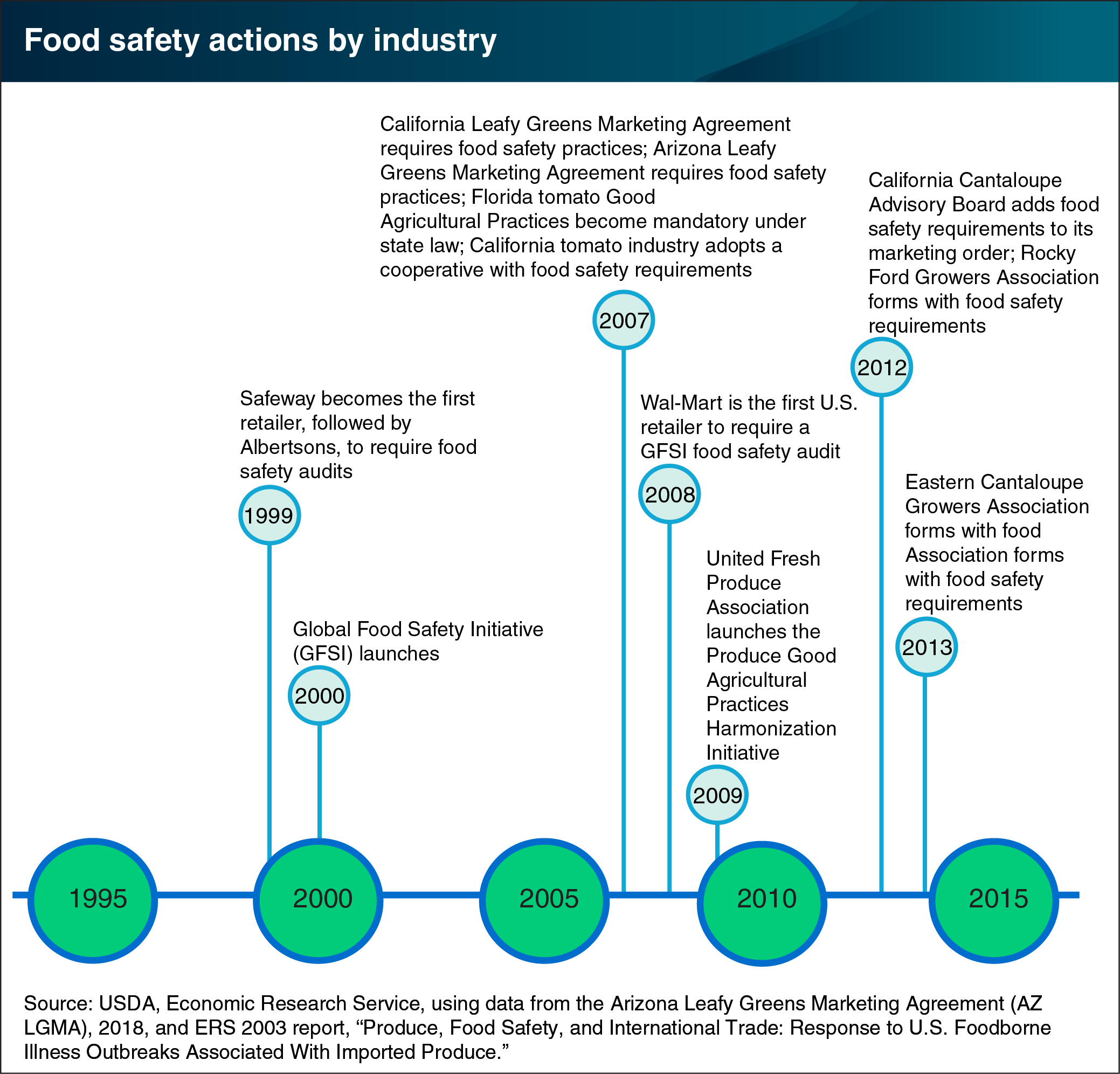Food safety actions by the produce industry and commercial buyers have moved food safety practices forward
- by Travis Minor
- 4/4/2019

Errata: On April 4, 2019, the final sentence in the text of the Chart of Note “Food safety actions by the produce industry and commercial buyers have moved food safety practices forward” was corrected so that the date of its related ERS report was properly stated as April 2019.
The produce industry and commercial buyers (retailers, foodservice buyers, and produce processors) have been instrumental in pushing food safety practices forward. Retailers strive to ensure food safety while not having direct control over production practices. Many retail companies have turned to indirect means, using third-party audits, to make certain that the produce they buy is grown following certain food safety practices. In 1999, Safeway became the first U.S. grocery chain to require audits from its suppliers of “high risk” fresh produce. Many other retailers followed. Marketing orders—standards initiated by producers—began to emerge later as a means for specific commodity groups to provide assurance of safe practices to industry buyers and consumers. The California leafy greens industry in 2007 initiated the Leafy Greens Marketing Agreement (LGMA)—a voluntary program that requires participants to implement mandatory food safety practices, which include third-party audits—and many others followed. Retailer food safety requirements have shaped the current food safety landscape and will determine the extent to which the Food Safety Modernization Act’s recently implemented “Produce Rule” affects growers. This information grew out of ERS research, including the 2007 Amber Waves article, “Outbreak Linked to Spinach Forces Reassessment of Food Safety Practices.” This chart appears in the ERS report, “Food Safety Requirements for Produce Growers: Retailer Demands and the Food Safety Modernization Act,” released in April 2019.

